
Find Help
More Items From Ergsy search
-
What is a COVID-19 variant?
Relevance: 100%
-
How are COVID-19 variants detected?
Relevance: 99%
-
What is the Covid-19 Stratus variant?
Relevance: 96%
-
How do COVID-19 variants arise?
Relevance: 94%
-
Do new variants affect COVID-19 testing?
Relevance: 92%
-
What is the process to identify a new Covid-19 variant?
Relevance: 90%
-
Where can I learn about real Covid-19 variants?
Relevance: 89%
-
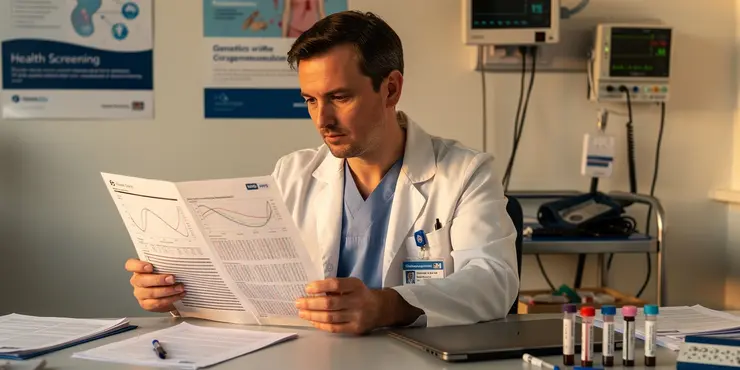
How do scientists name new Covid-19 variants?
Relevance: 87%
-
How often do new COVID-19 variants emerge?
Relevance: 87%
-
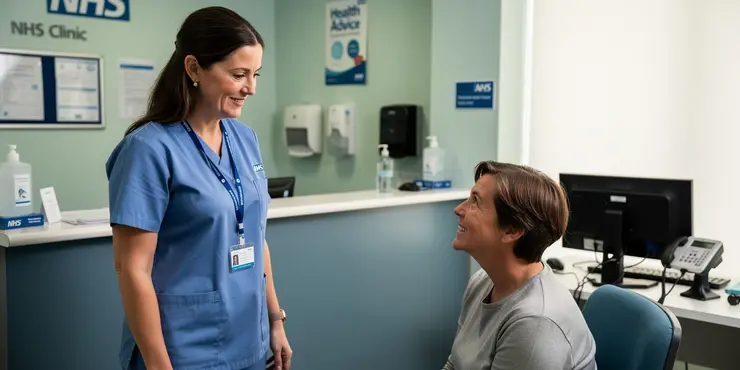
How can I protect myself from new COVID-19 variants?
Relevance: 85%
-
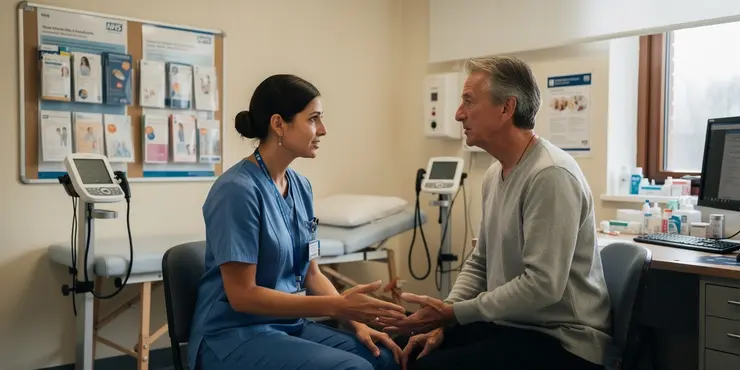
Are new COVID-19 variants more dangerous?
Relevance: 84%
-

Do vaccines work against new COVID-19 variants?
Relevance: 84%
-
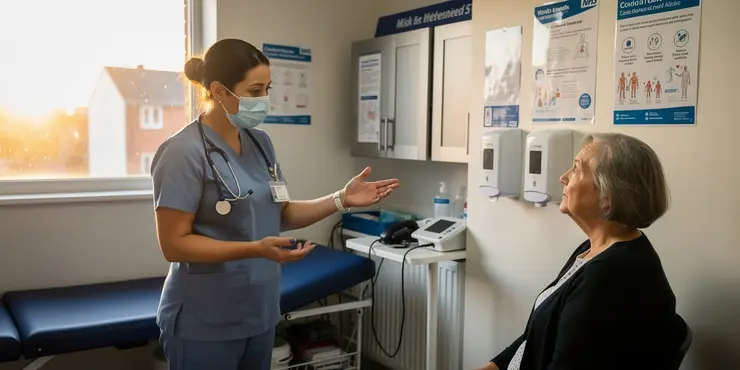
How can I protect myself from Covid-19 variants?
Relevance: 83%
-
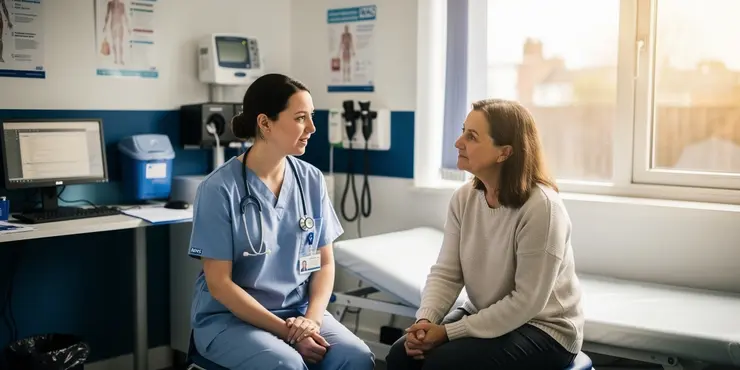
Should I get vaccinated if I already had COVID-19?
Relevance: 76%
-
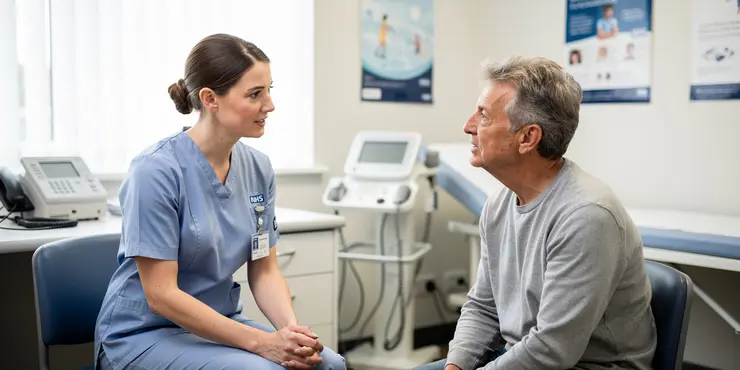
What sources should I consult for information on Covid-19?
Relevance: 74%
-
Does the flu vaccine protect against COVID-19?
Relevance: 71%
-
Can the COVID jab give me COVID-19?
Relevance: 67%
-
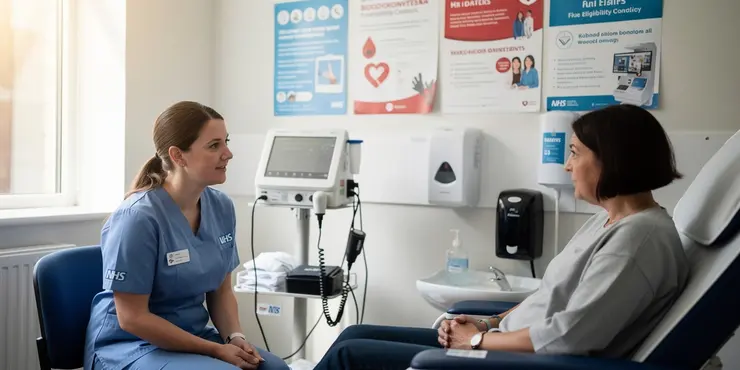
Can COVID-19 be transmitted through blood transfusions?
Relevance: 66%
-
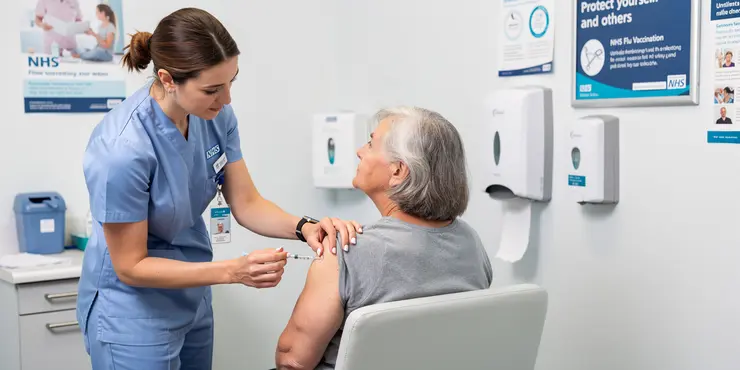
Will getting the flu jab protect me against COVID-19?
Relevance: 65%
-
Does travel insurance cover COVID-19 related issues?
Relevance: 65%
-
What are the COVID-19 travel restrictions for traveling to Spain?
Relevance: 64%
-
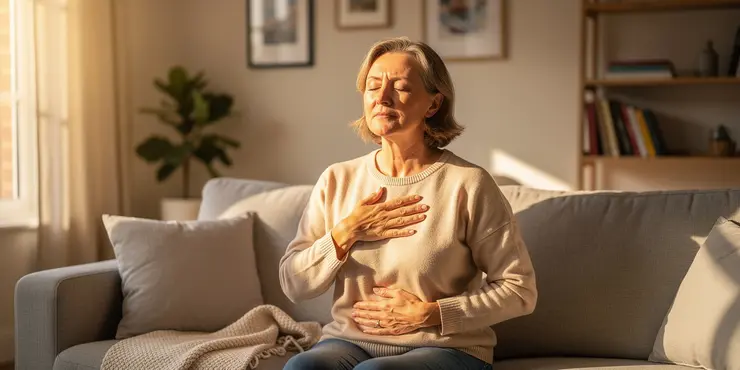
Breathlessness after COVID-19 - helpful techniques
Relevance: 62%
-
Can air physiotherapy help with COVID-19 recovery?
Relevance: 62%
-

Are children more affected by new variants of COVID?
Relevance: 59%
-

What are the Nimbus and Stratus variants of Covid?
Relevance: 58%
-
New Covid Variant Strains
Relevance: 56%
-

Can new variants cause reinfection?
Relevance: 56%
-
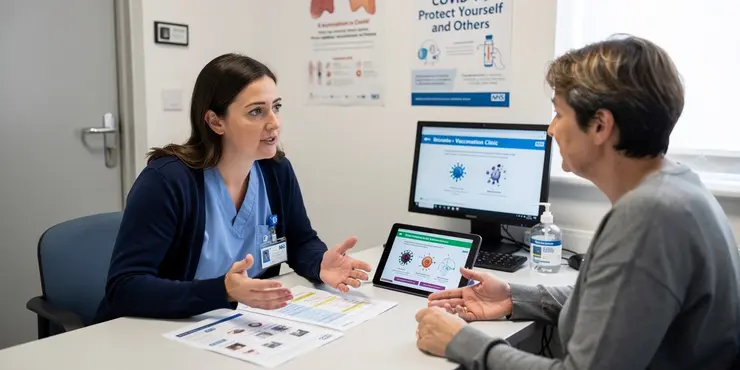
Are new variants more transmissible?
Relevance: 56%
-

Is there concern about new hypothetical variants like Nimbus and Stratus?
Relevance: 52%
-
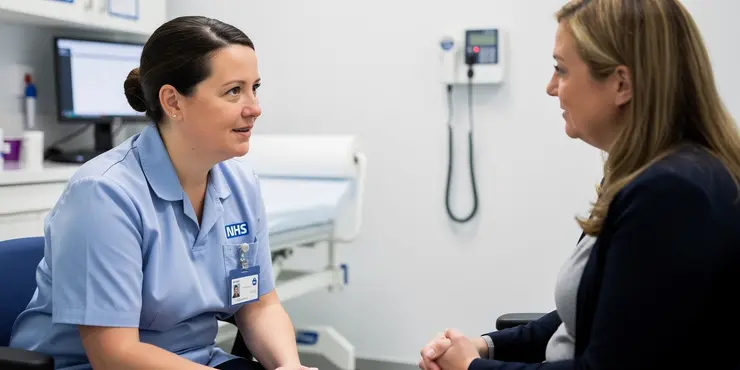
Is the Nimbus variant more contagious?
Relevance: 46%
-
What are some well-known COVID-19 variants?
Relevance: 45%
-
Are the symptoms different with new COVID-19 variants?
Relevance: 45%
-
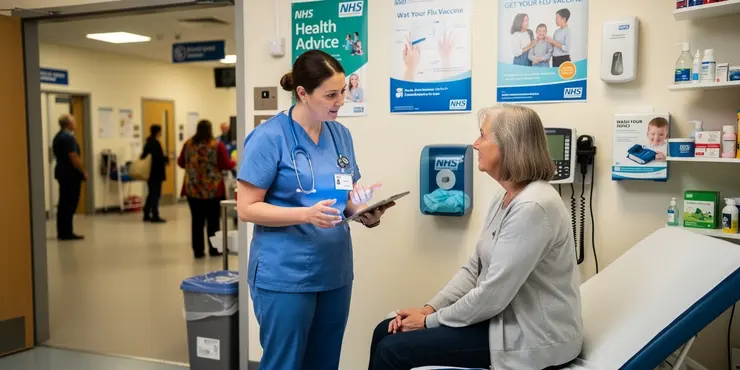
What would happen if the Nimbus variant existed?
Relevance: 45%
-
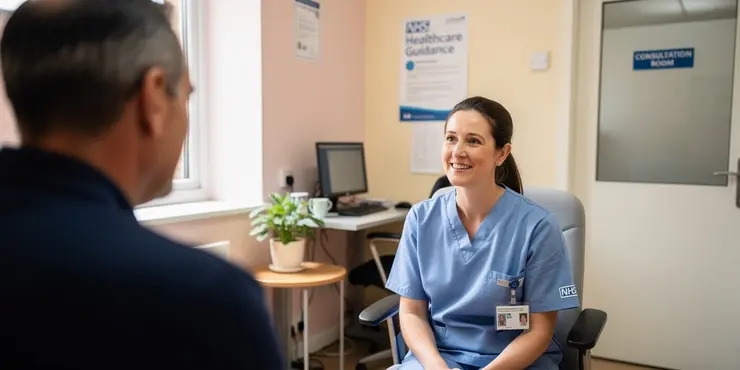
Should I be worried about new variants?
Relevance: 43%
-
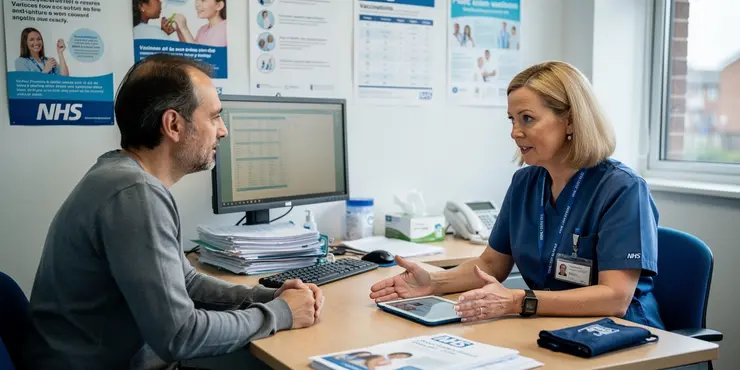
Do vaccines protect against the Stratus variant?
Relevance: 41%
-
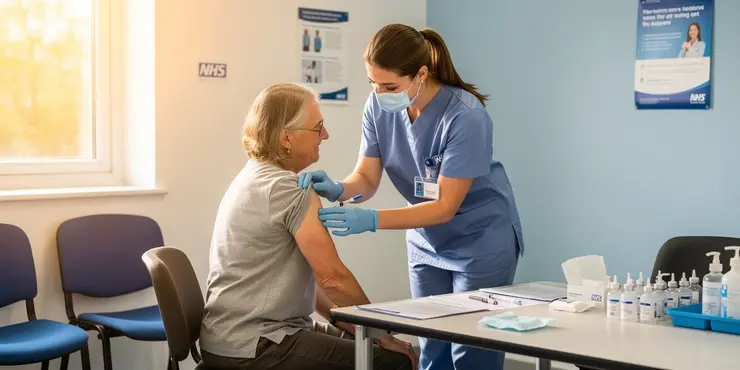
when will i need my next COVID jab?
Relevance: 41%
-
Can current treatments handle new COVID-19 variants?
Relevance: 40%
-
What is being done globally to track COVID-19 variants?
Relevance: 40%
-
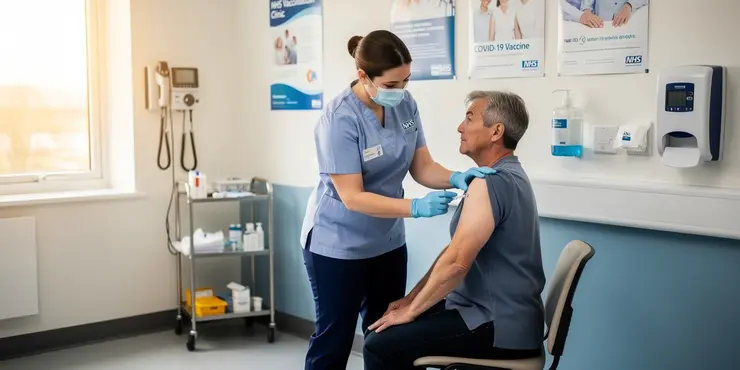
Are COVID jabs safe?
Relevance: 38%
-
How do COVID jabs work?
Relevance: 38%
Introduction
The process of identifying a new Covid-19 variant involves multiple stages, from the detection of unusual cases to the confirmation of genetic mutations. This complex process is crucial for guiding public health responses and updating vaccines. The UK, with its strong genomic sequencing capabilities, plays a pivotal role in tracking variants.
Surveillance and Sampling
The first step in identifying a new Covid-19 variant is enhanced epidemiological surveillance. Health authorities collect samples from infected individuals, focusing on areas with high transmission rates or clusters of cases with unusual characteristics. In the UK, Public Health England and other agencies coordinate the collection and prioritization of these samples.
Genomic Sequencing
Once samples are collected, they undergo genomic sequencing. This process decodes the virus's genetic material to identify its sequence. The UK has one of the world's most advanced genomic sequencing infrastructures, largely due to the efforts of the COVID-19 Genomics UK (COG-UK) Consortium. Sequencing helps detect any changes or mutations in the virus's genetic code.
Data Analysis and Comparison
After sequencing, scientists analyze the genetic data to compare it with the original Covid-19 strain and other existing variants. Sophisticated bioinformatics tools and databases, like the Global Initiative on Sharing All Influenza Data (GISAID), are used to catalog and track these genetic changes. Identifying specific mutations allows scientists to assess whether they confer new properties, such as increased transmissibility or immune evasion.
Evaluation of Impact
If a set of mutations is identified, researchers evaluate its potential impact on transmission, severity, and vaccine effectiveness through laboratory experiments and epidemiological studies. The UK often collaborates with international bodies, like the World Health Organization, to assess the risks posed by new variants and to update vaccine formulations if necessary.
Regulatory and Public Health Response
Once a new variant is confirmed, public health authorities and regulatory agencies implement measures to control its spread. This may include updating testing protocols, revising public health guidelines, and informing vaccine manufacturers. The UK government takes a proactive stance in disseminating information to the public and adjusting health strategies as required.
Conclusion
Identifying a new Covid-19 variant is a rigorous scientific process involving surveillance, sequencing, and analysis. The UK's robust genomic capabilities ensure early detection and assessment of variants, aiding in swift public health responses. Continued vigilance and international collaboration are essential to managing the evolving Covid-19 pandemic effectively.
Introduction
Finding a new version of Covid-19 is a step-by-step process. It starts with noticing unusual cases and ends with checking for changes in the virus. This is very important for keeping people safe and making vaccines better. The UK is very good at checking virus changes.
Watching and Collecting
The first step is watching how the virus spreads. Health workers collect samples from people who have the virus, especially in places where many people are getting sick. In the UK, groups like Public Health England help with this job.
Checking the Virus's Genes
After collecting samples, scientists look at the virus’s genes. They read the virus's genetic code to see what it looks like. The UK is really good at this because of a group called the COVID-19 Genomics UK Consortium. This helps find any changes in the virus.
Studying and Comparing Data
After looking at the genes, scientists compare them to old versions of the virus. They use special computer tools and libraries like GISAID to track changes. Finding changes helps scientists know if the virus spreads faster or can avoid vaccines.
Checking the Changes
If changes are found, scientists study them to see if they make the virus spread more or make people sicker. The UK works with groups like the World Health Organization to understand these risks and change vaccines if needed.
Health Rules and Actions
When a new version is found, health leaders make plans to stop it from spreading. This can mean using different tests, changing health tips, and telling vaccine makers. The UK quickly shares info with people and changes health plans when needed.
Conclusion
Finding a new version of Covid-19 is a careful science process. The UK is good at finding changes early and helping with fast health actions. Working together worldwide is key to keeping everyone safe from Covid-19.
Frequently Asked Questions
What is a Covid-19 variant?
A Covid-19 variant is a strain of the SARS-CoV-2 virus that has genetic mutations distinguishing it from other strains.
How are Covid-19 variants identified?
Variants are identified through genomic sequencing of virus samples collected from infected individuals.
What is genomic sequencing?
Genomic sequencing is the process of determining the complete DNA sequence of an organism's genome at a single time.
Why is sequencing important in identifying Covid-19 variants?
Sequencing helps to trace the transmission paths, understand the biology of the virus, and monitor changes which might impact vaccine efficacy.
Who is responsible for sequencing Covid-19 viruses?
Various public health organizations, research laboratories, and government agencies around the world are involved in sequencing.
What initial step is taken to collect samples for sequencing?
Samples are collected from infected individuals, typically through nasal or throat swabs.
How is a new variant initially flagged?
Potential new variants are flagged when mutations appear that could affect the virus's characteristics or spread.
What happens after a potential variant is flagged?
The flagged variant undergoes further scrutiny to understand its impact and prevalence.
How do scientists determine if a variant is notable?
Scientists look at how the mutations affect transmissibility, disease severity, and vaccine resistance.
What is the role of WHO in the process of identifying variants?
WHO coordinates efforts to track and study variants and assigns labels to variants of concern.
What is a 'Variant of Concern'?
A Variant of Concern is a SARS-CoV-2 variant that poses an increased risk to global health.
What criteria make a variant labeled as 'Variant of Interest'?
A Variant of Interest is one that has genetic changes predicted to affect virus characteristics and has been identified to cause community transmission.
How long does it typically take to identify a new variant?
It can take several weeks from samples collected to the identification of a new variant.
How are variants tracked once identified?
Variants are monitored through national and international databases, with reported cases being sequenced and shared.
What technologies are used for sequencing?
Technologies like Next Generation Sequencing (NGS) are commonly used for rapid and detailed sequencing.
Can the public access information about new variants?
Yes, organizations like GISAID and public health agencies provide data on variants to researchers and the public.
What challenges exist in identifying new variants?
Challenges include limited sequencing capacity, data sharing issues, and distinguishing significant mutations from benign ones.
How does international collaboration aid in the identification of variants?
Collaboration allows for sharing of data, resources, and expertise to accelerate the detection and understanding of variants.
Why is ongoing surveillance essential even after vaccines are available?
Continuous surveillance helps detect new variants that could potentially evade immune protection from vaccines.
What role do public health measures play in controlling new variants?
Measures such as vaccination, social distancing, and masking can help limit the spread of new variants.
What is a Covid-19 variant?
A Covid-19 variant is a different type of the Covid-19 virus. It happens when the virus changes a little bit. These changes are called mutations. The changes can make the virus act in new ways. It's still Covid-19, but just a bit different.
To understand better, you can:
- Look at pictures or videos about Covid-19.
- Ask someone to explain it to you using simple words.
- Use apps or websites that help with reading and learning.
If you have questions, it is okay to ask for help!
A Covid-19 variant is a different type of the virus that causes Covid-19. The virus is called SARS-CoV-2. A variant is made when the virus changes a little bit. These changes are called mutations. Mutations make the variant different from other types of the virus.
How do we find different types of Covid-19?
Scientists look at tiny parts of the virus. This is called "genetic testing."
They do special tests in a lab to see if the virus has changed.
To help understand, you can:
- Watch videos with pictures about Covid-19.
- Ask a doctor or teacher to explain.
- Use simple apps that show how viruses work.
Scientists find different types of the virus by looking at the virus's genes. They do this by studying samples from people who have the virus.
What is genomic sequencing?
Genomic sequencing is a way to find out what makes you, you. It looks at all the letters in your DNA, like a book about you.
This helps doctors learn about your body and its health. If you need help understanding this, you can ask someone you trust or use drawings and pictures to help you learn.
Genomic sequencing is how we find out the whole DNA code of a living thing all at once.
Why is it important to know the order of Covid-19 variants?
Understanding the order of Covid-19 variants helps us know more about the virus. This helps doctors and scientists find the best ways to stop it.
Here are some ways you can better understand and keep track:
- Use picture stories to see how one variant is different from another.
- Watch videos that explain how the virus changes.
- Talk to someone who knows about Covid-19 if you have questions.
Sequencing helps us follow how the virus spreads, learn how it works, and check for changes that might affect how well a vaccine works.
Who checks the order of Covid-19 viruses?
Some people and scientists work to understand how Covid-19 viruses look and change. They study these viruses to tell us more about them.
Many health groups, research labs, and government offices all over the world work on sequencing.
How do we start to collect samples for sequencing?
To check if someone is sick, doctors take samples. They use a special stick to gently swab the inside of the nose or throat.
How do we find a new variant?
We watch for new changes in the virus. Sometimes, these changes can make the virus act differently or spread faster.
What happens after we see a new variant?
The flagged variant is checked carefully to see how it affects things and how common it is.
How do scientists decide if a variant is important?
Scientists study changes to see if they matter. They look at:
- How the change spreads
- If it makes people more sick
- How it affects treatments
- If it changes tests
They use special tools and work together to make these decisions.
Tips:
- Use simple words and break big words into parts.
- Visual aids like pictures can help understand the ideas.
- Talking about it with someone else can make it clearer.
Scientists study how the changes in the virus affect how easily it spreads, how sick it can make people, and how well vaccines work.
What does WHO do to find new types of viruses?
The WHO is a group that works with others to watch and study different types of a virus. They also give names to the types that we need to worry about.
What is a 'Variant of Concern'?
A 'Variant of Concern' is a type of virus that changes and might spread more easily or make people sicker.
Scientists watch these viruses carefully to keep everyone safe.
If you want to learn more, you can:
- Ask a doctor or nurse.
- Use simple videos or pictures to help understand.
A Variant of Concern is a type of the COVID-19 virus that is more dangerous for people around the world.
What makes a variant a 'Variant of Interest'?
A variant is a type of virus that is a bit different.
When scientists say a variant is a 'Variant of Interest', it means:
- It can spread to more people.
- It might make people more sick.
- It might not work well with vaccines or treatments.
Tools to help understand:
- Use pictures or videos about germs and viruses.
- Ask someone to explain it with simple words.
- Break it down: Talk about one point at a time.
A Variant of Interest is a type of virus that has changed in a way that might change how it behaves. Scientists think these changes could help the virus spread to people in a community.
Here are some tools and tips to help understand better:
- Use drawings or pictures to show how the virus changes.
- Listen to someone read the text out loud.
- Talk about the text with a friend or helper.
How long does it take to find a new variant?
Finding new variants can be quick or slow. It depends on scientists and their work.
They need to study samples, which takes time.
Here are some things that can help:
- Use pictures and diagrams to explain.
- Make lists with bullet points.
- Use simple words and short sentences.
It can take a few weeks to find a new version of the virus from the samples collected.
How do we keep track of variants once we find them?
We watch virus changes by looking at information from around the world. Scientists check the virus and share what they find.
What tools do we use to read DNA?
New technologies like Next Generation Sequencing (NGS) help us read DNA very quickly and in detail.
Can people find out about new virus types?
Yes, groups like GISAID and public health agencies share information about different virus types with researchers and the public.
What makes finding new variants hard?
Finding new variants can be tricky. Here are some reasons why:
- Viruses change quickly, so new variants can appear fast.
- We need special tests and tools to see these changes.
- Sometimes, there aren't enough tests to check everywhere.
- It takes time and skilled people to find and study these variants.
Helpful tools like pictures and videos can make this information easier to understand.
Problems include not having enough machines to read DNA, trouble sharing information, and figuring out which DNA changes are important and which ones are not.
How do countries work together to find new virus changes?
Countries help each other find changes in viruses. This is called working together or teamwork.
Working together helps scientists to:
- Learn faster about new virus changes.
- Share information and tools.
- Keep people safe.
Using pictures and simple charts can help to understand this better.
Working together helps people share information, tools, and skills. This makes it quicker and easier to find and understand new things.
Why do we still need to watch for disease after vaccines are made?
Vaccines are like shields that help protect us from getting sick. But sometimes new germs can appear or germs can change. It's important to keep watching for sickness to make sure everyone stays safe.
To help understand this better, you can:
- Use picture books or videos about health to learn more.
- Ask a friend or family member to explain things you don’t understand.
- Use apps or tools that read texts out loud to you.
Watching closely all the time helps find new virus types that might not be stopped by vaccines.
How do public health actions help stop new variants?
Public health actions, like wearing masks and washing hands, help stop new variants of viruses. These actions stop the virus from spreading.
If fewer people get the virus, it can’t change as much. This makes it easier to keep everyone safe.
It's good to follow health advice and get vaccinated. These are strong ways to fight new variants.
Support tools:
- Use picture books or videos that explain how to stay healthy.
- Ask a family member or friend to help read and understand this information together.
Getting your shots, staying apart from others, and wearing masks can help stop the spread of new germs.
Useful Links
This website offers general information and is not a substitute for professional advice.
Always seek guidance from qualified professionals.
If you have any medical concerns or need urgent help, contact a healthcare professional or emergency services immediately.
Some of this content was generated with AI assistance. We’ve done our best to keep it accurate, helpful, and human-friendly.
- Ergsy carfully checks the information in the videos we provide here.
- Videos shown by Youtube after a video has completed, have NOT been reviewed by ERGSY.
- To view, click the arrow in centre of video.
- Most of the videos you find here will have subtitles and/or closed captions available.
- You may need to turn these on, and choose your preferred language.
- Go to the video you'd like to watch.
- If closed captions (CC) are available, settings will be visible on the bottom right of the video player.
- To turn on Captions, click settings .
- To turn off Captions, click settings again.
More Items From Ergsy search
-
What is a COVID-19 variant?
Relevance: 100%
-
How are COVID-19 variants detected?
Relevance: 99%
-
What is the Covid-19 Stratus variant?
Relevance: 96%
-
How do COVID-19 variants arise?
Relevance: 94%
-
Do new variants affect COVID-19 testing?
Relevance: 92%
-
What is the process to identify a new Covid-19 variant?
Relevance: 90%
-
Where can I learn about real Covid-19 variants?
Relevance: 89%
-

How do scientists name new Covid-19 variants?
Relevance: 87%
-
How often do new COVID-19 variants emerge?
Relevance: 87%
-

How can I protect myself from new COVID-19 variants?
Relevance: 85%
-

Are new COVID-19 variants more dangerous?
Relevance: 84%
-

Do vaccines work against new COVID-19 variants?
Relevance: 84%
-

How can I protect myself from Covid-19 variants?
Relevance: 83%
-

Should I get vaccinated if I already had COVID-19?
Relevance: 76%
-

What sources should I consult for information on Covid-19?
Relevance: 74%
-
Does the flu vaccine protect against COVID-19?
Relevance: 71%
-
Can the COVID jab give me COVID-19?
Relevance: 67%
-

Can COVID-19 be transmitted through blood transfusions?
Relevance: 66%
-

Will getting the flu jab protect me against COVID-19?
Relevance: 65%
-
Does travel insurance cover COVID-19 related issues?
Relevance: 65%
-
What are the COVID-19 travel restrictions for traveling to Spain?
Relevance: 64%
-

Breathlessness after COVID-19 - helpful techniques
Relevance: 62%
-
Can air physiotherapy help with COVID-19 recovery?
Relevance: 62%
-

Are children more affected by new variants of COVID?
Relevance: 59%
-

What are the Nimbus and Stratus variants of Covid?
Relevance: 58%
-
New Covid Variant Strains
Relevance: 56%
-

Can new variants cause reinfection?
Relevance: 56%
-

Are new variants more transmissible?
Relevance: 56%
-

Is there concern about new hypothetical variants like Nimbus and Stratus?
Relevance: 52%
-

Is the Nimbus variant more contagious?
Relevance: 46%
-
What are some well-known COVID-19 variants?
Relevance: 45%
-
Are the symptoms different with new COVID-19 variants?
Relevance: 45%
-

What would happen if the Nimbus variant existed?
Relevance: 45%
-

Should I be worried about new variants?
Relevance: 43%
-

Do vaccines protect against the Stratus variant?
Relevance: 41%
-

when will i need my next COVID jab?
Relevance: 41%
-
Can current treatments handle new COVID-19 variants?
Relevance: 40%
-
What is being done globally to track COVID-19 variants?
Relevance: 40%
-

Are COVID jabs safe?
Relevance: 38%
-
How do COVID jabs work?
Relevance: 38%


